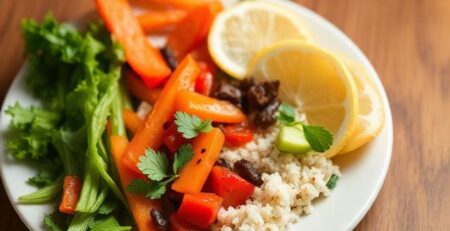7 Best Foods to Increase Fertility in Females: Boost Reproductive Health Naturally
Introduction
For women trying to conceive, nutrition plays a vital role in reproductive health. Consuming the right foods can support ovulation, egg quality, and hormonal balance, all of which are essential for fertility. While medical treatments help in many cases, a fertility-friendly diet can enhance natural conception chances.
This guide explores:
- 7 best foods to increase fertility in females
- How each food supports reproductive health
- Nutrients essential for female fertility
- Frequently asked questions about fertility nutrition
1. Leafy Green Vegetables
Why They Boost Fertility
Leafy greens like spinach, kale, and broccoli are rich in:
- Folate – essential for egg development and reducing risk of neural tube defects
- Iron – prevents anemia and supports ovulation
- Antioxidants – protect eggs from oxidative stress
How to Include Them
- Fresh salads or smoothies
- Lightly steamed as side dishes
- In soups or stir-fries
Benefits
- Supports hormonal balance
- Improves ovarian function
- Enhances uterine lining health
2. Berries (Blueberries, Strawberries, Raspberries)
Nutritional Profile
Berries are packed with:
- Vitamin C – boosts fertility by improving hormone levels
- Antioxidants – protect eggs from free radical damage
- Fiber – helps maintain healthy blood sugar levels
Benefits for Female Fertility
- Enhances egg quality
- Supports ovulation
- Reduces inflammation in reproductive organs
Tips
- Add to morning oatmeal or yogurt
- Include as healthy snacks
- Make antioxidant-rich smoothies
3. Fatty Fish (Salmon, Sardines, Mackerel)
Why Fatty Fish Helps
Rich in omega-3 fatty acids, fatty fish improves fertility by:
- Supporting hormonal balance
- Reducing inflammation
- Enhancing blood flow to reproductive organs
Additional Nutrients
- Vitamin D – crucial for implantation and pregnancy maintenance
- Protein – supports overall reproductive health
Tips
- Consume 2–3 servings per week
- Choose low-mercury fish
- Bake, grill, or steam instead of frying
4. Nuts and Seeds (Almonds, Walnuts, Flaxseeds, Chia Seeds)
Fertility Benefits
Nuts and seeds provide:
- Healthy fats – essential for hormone production
- Vitamin E – antioxidant protecting reproductive cells
- Zinc – important for ovulation
How to Include
- Snack on a small handful daily
- Add to yogurt, smoothies, or salads
- Sprinkle flaxseeds or chia seeds in oatmeal
Key Takeaways
- Improves egg quality and hormone levels
- Supports regular menstrual cycles
5. Whole Grains (Oats, Quinoa, Brown Rice)
Importance for Fertility
Whole grains stabilize blood sugar levels, preventing hormonal imbalances that affect ovulation. They also provide:
- B vitamins – improve egg health
- Fiber – supports digestion and reduces insulin spikes
Benefits
- Promotes healthy ovulation
- Reduces risk of PCOS-related infertility
- Supports uterine and ovarian health
Tips
- Replace refined grains with whole grains
- Include in breakfast (oats, quinoa porridge)
- Use brown rice in meals instead of white rice
6. Eggs
Nutritional Power
Eggs are a fertility superfood containing:
- Choline – supports healthy fetal development
- Protein – essential for hormone synthesis
- Vitamin D and B12 – improve reproductive health
Benefits
- Enhances egg quality
- Supports hormone regulation
- Provides essential nutrients for conception
Tips
- Include 1–2 eggs daily
- Boil, poach, or make omelets for easy consumption
- Pair with vegetables for nutrient-rich meals
7. Citrus Fruits (Oranges, Grapefruits, Lemons)
Why Citrus Fruits Boost Fertility
Citrus fruits are rich in:
- Vitamin C – boosts fertility by improving hormone levels
- Antioxidants – protect eggs from oxidative stress
- Folate – supports early embryo development
Benefits
- Improves ovulation
- Enhances egg health
- Strengthens reproductive tissues
Tips
- Eat fresh fruits daily
- Drink freshly squeezed juice without added sugar
- Include citrus in salads for extra flavor and nutrition
8. Additional Fertility-Boosting Foods
While the above 7 are top recommendations, other supportive foods include:
- Legumes – rich in protein and iron
- Dairy products – provide calcium and vitamin D
- Avocado – healthy fats for hormone balance
- Pomegranate – improves blood flow to reproductive organs
9. Key Nutrients for Female Fertility
| Nutrient | Role in Fertility | Food Sources |
|---|---|---|
| Folate | Egg health, reduces birth defect risk | Leafy greens, citrus, legumes |
| Iron | Prevents anemia, supports ovulation | Spinach, beans, red meat |
| Omega-3 | Hormone regulation, reduces inflammation | Fatty fish, flaxseeds, walnuts |
| Vitamin C | Hormone balance, antioxidant | Citrus fruits, berries, bell peppers |
| Vitamin E | Protects reproductive cells | Nuts, seeds, vegetable oils |
| Zinc | Supports ovulation | Nuts, seeds, whole grains |
| Protein | Hormone synthesis | Eggs, dairy, legumes, meat |
10. Lifestyle Tips to Enhance Fertility
- Maintain a healthy weight – BMI affects hormone balance
- Exercise regularly but avoid over-exercising
- Manage stress through yoga, meditation, or mindfulness
- Avoid smoking, alcohol, and processed foods
- Stay hydrated for optimal hormonal function
11. FAQs About Foods That Increase Female Fertility
Q11.1: Can diet really improve fertility?
Yes, a nutrient-rich diet supports ovulation, egg quality, and hormonal balance, improving chances of conception.
Q11.2: How long does it take to see results from a fertility diet?
Typically 2–3 months of consistent dietary and lifestyle changes show improvement in menstrual cycles and ovulation.
Q11.3: Are there foods that reduce fertility?
Yes, processed foods, excess sugar, trans fats, alcohol, and caffeine may negatively affect fertility.
Q11.4: Can vegetarians improve fertility naturally?
Yes, by consuming protein-rich legumes, dairy, nuts, seeds, and whole grains.
Q11.5: Should supplements be taken?
Supplements like folic acid, vitamin D, and omega-3 can support fertility if dietary intake is insufficient.
Q11.6: Do superfoods guarantee pregnancy?
No food guarantees conception, but a balanced fertility diet enhances reproductive health and increases chances of success.
Q11.7: How do antioxidants help fertility?
Antioxidants protect eggs from oxidative stress, improving egg quality and hormonal function.
Q11.8: Can lifestyle changes combined with diet improve fertility?
Yes, healthy lifestyle choices combined with a fertility-focused diet significantly improve reproductive health.
Q11.9: Are processed grains bad for fertility?
Yes, refined grains spike insulin, potentially affecting hormone balance and ovulation.
Q11.10: How can I track fertility improvements?
Monitor menstrual cycle regularity, ovulation patterns, and hormonal health with your doctor or using fertility tracking apps.
12. Conclusion
A fertility-friendly diet plays a crucial role in enhancing female reproductive health. Incorporating the 7 best foods – leafy greens, berries, fatty fish, nuts, whole grains, eggs, and citrus fruits – provides essential nutrients to improve ovulation, egg quality, and hormonal balance.
Coupled with healthy lifestyle choices, this approach maximizes natural conception chances. While no single food guarantees pregnancy, a consistent nutrient-rich diet and holistic care offer the best support for fertility.
⚠️ Disclaimer:
This article is for informational purposes only and is not a substitute for professional medical advice. Consult a qualified gynecologist, fertility specialist, or dietitian for personalized guidance before making dietary changes, taking supplements, or starting fertility treatments. Individual results may vary.












